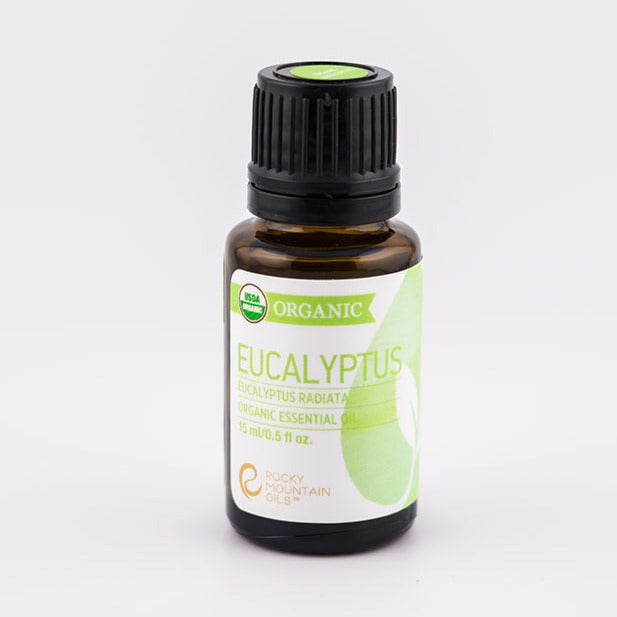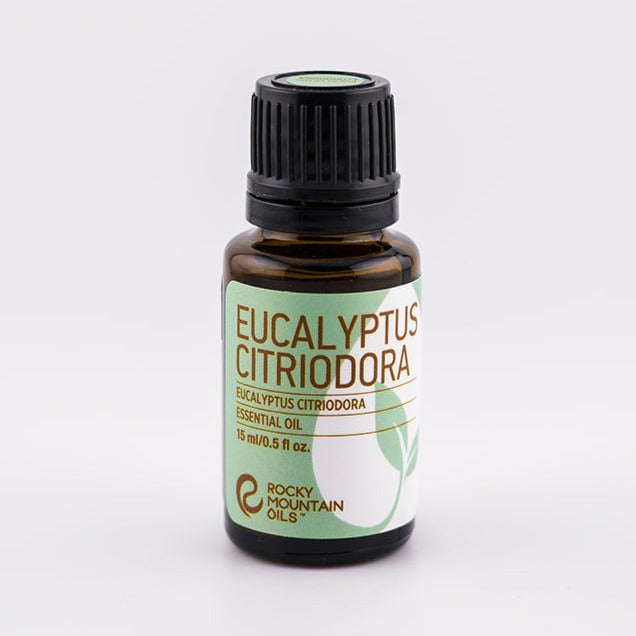Botanical Name: Eucalyptus radiata
Places of Origin: Australia
Extraction Method: Steam distilled
Plant Part: Leaf
Aroma: Sweet, Fruity
Consistency: Thin
Eucalyptus radiata is considered the most
therapeutic of the varieties.

Eucalyptus Essential Oil
Eucalyptus Radiata Essential Oil possesses a crisp, woody-like aroma, and delivers a wealth of benefits. The incredibly versatile Eucalyptus oil helps calm and center the mind; it can also repel insects, clean and deodorize the home, and help inspire deep breathing. These properties are just a few of the many reasons why we added Eucalyptus to our Wellness collection.
So, let’s take a journey through history to discover the oil’s origins, how it’s produced, and why it’s a must-have for any essential oil collection.
Where Does Eucalyptus Essential Oil Come From?
Australia is home to roughly 700 types of Eucalyptus, and researchers and botanists continue to discover and catalog unknown species. While Eucalyptus trees originated in Australia, they can now be found in other parts of the world, too. These “exotic” plants from Down Under made their way to Europe in the early 1800s and have subsequently spread to Africa, South America, India, and California.
As a member of the Myrtaceae family, the towering Eucalyptus Radiata tree, standing at up to 97 feet in height, offers a host of eucalyptus essential oil benefits. Its glossy leaves gracefully taper to a sharp point, exuding a robust and aromatic fragrance. It's no wonder that Eucalyptus Radiata is often referred to as the narrow-leaved peppermint tree, as its leaves closely resemble those of the narrow-leaved peppermint plant.
What Are the Different Types of Eucalyptus Essential Oil?
While radiata is the most versatile out of the Eucalyptus oils, here is a little more information about the most common types of Eucalyptus Essentials Oils:
- Eucalyptus radiata: Commonly known as, narrow-leaved peppermint and Forth River peppermint, this type of Eucalyptus has a gentler aroma than the other types, making it ideal for those more who have a more sensitive sense of smell
- Eucalyptus citriodora: This type of Eucalyptus is commonly known as lemon-scented gum and Corymbia Citriodora. A lemon, citronella-like fragrance mellows the oil’s camphor notes, making it an excellent choice for skin care purposes.
How To Distill Eucalyptus Essential Oil
Steam distillation is the most common method to extract Eucalyptus oil from the plant. Steam distillation uses a carefully calibrated combination of soft pressure and heated steam on either fresh or partially dried leaves, and young twigs. Once the vapor cools, the water and oil separate, allowing the producer to bottle the essential oil.

Unlocking Eucalyptus Essential Oil Benefits
When it comes to versatility, Eucalyptus Radiata is the perfect place to start. Let’s look at just a few of the benefits of the oil:
- Eucalyptus Essential Oil for Supporting Your Immune System According to a 2010 study, Eucalyptus oils come with broad-spectrum antimicrobial action. The oil also offers powerful antibacterial, antifungal, and anti-infectious properties. Diffuse Eucalyptus Essential Oil, and inhale the vapor to promote a healthy respiratory system and deeper breathing.
How to Use Eucalyptus Essential Oil
- Mix with DIY soaps and room sprays for a deodorizing effect.
- Diffuse or add to blends to repel insects.
- Apply topically with a carrier oil, diffuse, or inhale the scent directly from the bottle to help promote deep breathing and soothe the mind.
Which Oils Blend Well with Eucalyptus?
Eucalyptus possesses a welcoming and gentle fragrance. Its slightly woody, yet sweet and fruity notes give a softer scent than its counterparts. Eucalyptus combines well with several other essential oils, including:

Eucalyptus Essential Oil Recipes
- 5 drops of Grapefruit Essential Oil
- 4 drops of Lemon Essential Oil
- 5 drops of Eucalyptus Radiata Essential Oil
- 2 drops of Tea Tree Essential Oil
- 1 drop of FCO
Mix all together. Massage into neck, shoulders, and along the back.
- 5 drops of Peppermint Essential Oil
- 10 drops of Lavender Essential Oil
- 8 drops of Eucalyptus Essential Oil
- 1 ounce of Virgin Coconut Oil
- 1 ounce of Shea Butter
In a clean, glass container, mix creams together and blend in the essential oils. Massage a small amount into the temples and back of the neck as needed. Close container lid tightly when not in use.
Read More ↓Using Eucalyptus Essential Oil Safely
Do not use Eucalyptus Radiata Essential Oil on children under 10 years old (consider Eucalyptus Citriodora or Myrtle as a safer alternative for children 2 years +). Refrain from using while pregnant or breastfeeding. Always apply Eucalyptus with a carrier oil for topical application. Click here for dilution rates.



